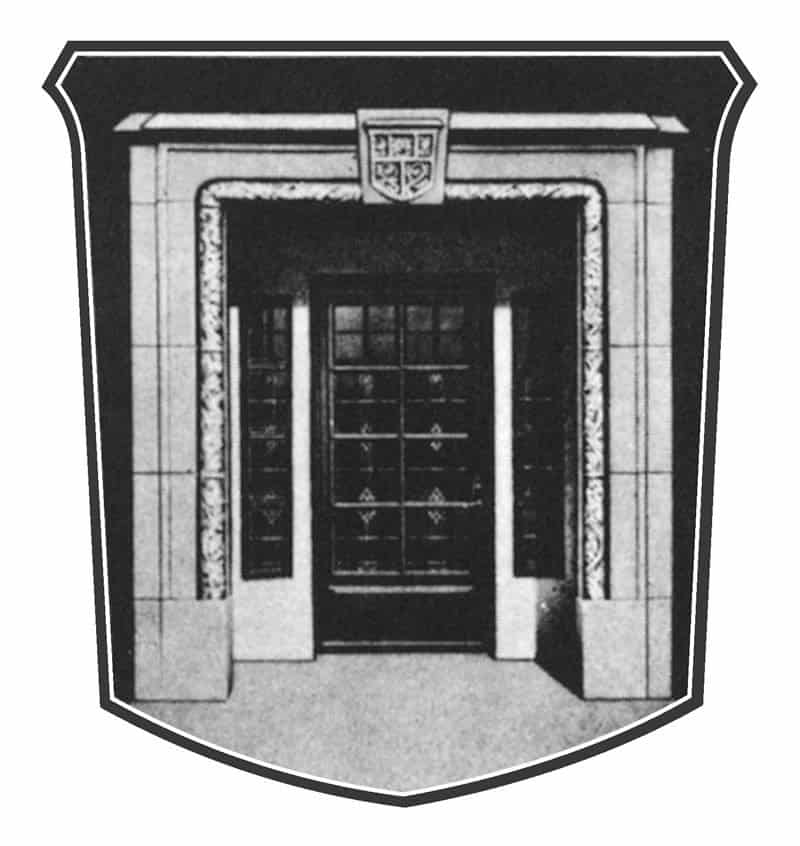View PDF: Vitamin F Research 1926 to 1957 1926 Boissevain, C.H. “The Action of Unsaturated Fatty Acids on Tubercle Bacilli.” Boissevain reports experiments showing the effect of unsaturated fatty acids on the virulence of tubercle bacilli in vitro. (Compare with the work of Larsen on the ricinoleates.) Linoleic and linolenic acids were among the most […]
By Dr. Royal Lee
 Summary: An inspired article by Dr. Lee about the irony of praying to God to overcome disease while ignoring the simple laws of health here on Earth. “Man needs no miraculous intervention to have perfect health and happiness,” he writes, “unless he first commits criminal acts of food adulteration and contamination.” Lee explains that there is “a frightful conspiracy to keep the public in the dark about the devastating, death-dealing effects of modern food counterfeits—the synthetic glucose, the synthetic hydrogenated fats, the refined cereals, the refined breakfast foods, the coal tar dyes and coal tar flavors that ensure acceptance of otherwise tasteless and colorless food frauds which destroy human life to the tune of over a million victims a year.” He adds that heart disease—the leading cause of death then as it is today—is so effectively countered by food therapy that “nine out of ten sufferers can be shown by cardiographic sound recordings to respond favorably within ten minutes to natural food products.” Originally published in Natural Food and Farming, 1955.
Summary: An inspired article by Dr. Lee about the irony of praying to God to overcome disease while ignoring the simple laws of health here on Earth. “Man needs no miraculous intervention to have perfect health and happiness,” he writes, “unless he first commits criminal acts of food adulteration and contamination.” Lee explains that there is “a frightful conspiracy to keep the public in the dark about the devastating, death-dealing effects of modern food counterfeits—the synthetic glucose, the synthetic hydrogenated fats, the refined cereals, the refined breakfast foods, the coal tar dyes and coal tar flavors that ensure acceptance of otherwise tasteless and colorless food frauds which destroy human life to the tune of over a million victims a year.” He adds that heart disease—the leading cause of death then as it is today—is so effectively countered by food therapy that “nine out of ten sufferers can be shown by cardiographic sound recordings to respond favorably within ten minutes to natural food products.” Originally published in Natural Food and Farming, 1955.
By Franklin Bicknell, MD, and Frederick Prescott, PhD
 Summary: A few pages about vitamin E from the classic text The Vitamins in Medicine. This authoritative book, which featured over 4500 references, was originally published in 1942, and in 1953 the Lee Foundation for Nutritional Research published its third edition. In this excerpt, Bicknell and Prescott give some critical information not generally known about vitamin E. For instance, while chemists long ago declared vitamin E to be the single compound alpha-tocopherol, the authors, like Dr. Lee and many of the other early nutritionists, thought differently: “While alpha-tocopherol means one distinct substance,” they write, “vitamin E may mean either alpha-tocopherol or a mixture of this and other similar substances.” Other gems about vitamin E are packed into these few pages, which go a long way to combat the poor level of understanding of nutrition’s “most misunderstood vitamin.” From The Vitamins in Medicine, 1953.
Summary: A few pages about vitamin E from the classic text The Vitamins in Medicine. This authoritative book, which featured over 4500 references, was originally published in 1942, and in 1953 the Lee Foundation for Nutritional Research published its third edition. In this excerpt, Bicknell and Prescott give some critical information not generally known about vitamin E. For instance, while chemists long ago declared vitamin E to be the single compound alpha-tocopherol, the authors, like Dr. Lee and many of the other early nutritionists, thought differently: “While alpha-tocopherol means one distinct substance,” they write, “vitamin E may mean either alpha-tocopherol or a mixture of this and other similar substances.” Other gems about vitamin E are packed into these few pages, which go a long way to combat the poor level of understanding of nutrition’s “most misunderstood vitamin.” From The Vitamins in Medicine, 1953.
By Don C. Matchan and Dr. Royal Lee
Summary: This report on a 1962 lecture by Dr. Royal Lee—essentially about the connection between illness and refined cooking oils—is a rally call for the American people to eschew the processed foods that were destroying their health and return to a diet of nutritious, whole foods. Dr. Lee excoriates the leaders of conventional nutrition at the time for actively promoting the consumption of processed foods, specifically calling out the head of Harvard’s Department of Nutrition, Dr. Frederick Stare, for accepting a million-dollar grant from food-processing giant General Foods. Dr. Stare, who also received funding from Coca-Cola and the National Soft Drinks Association, was largely responsible for the deception that refined sugar is harmless, saying it was “not even remotely true that modern sugar consumption contributes to poor health.” Later, Stare and his department would also lead the charge in discrediting Dr. Robert Atkins and other proponents of low-carbohydrate diets. From Herald of Health, 1962.

